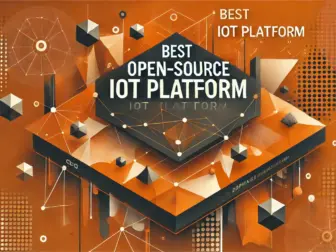Tag - IoT platforms comparison
Comparing Top IoT Platforms: Which One is Right for Your Business?
Choosing the right IoT platform for your business can be a daunting task, as there are numerous options available in the market. To help you make an informed decision, we have compared some of the top IoT platforms based on key criteria such as scalability, security, data analytics capabilities, and integration with existing systems.
One of the most popular IoT platforms is Amazon Web Services (AWS) IoT. AWS IoT provides a secure and scalable platform for connecting devices and collecting, storing, and analyzing data from these devices. With its wide range of services such as AWS IoT Core, AWS IoT Greengrass, and AWS IoT Device Management, AWS IoT is suitable for businesses of all sizes looking to build IoT solutions. Its integration with other AWS services such as Lambda, S3, and DynamoDB makes it a powerful choice for businesses already using AWS.
Another leading IoT platform is Microsoft Azure IoT. Azure IoT offers a comprehensive suite of tools and services for building and managing IoT solutions. With services like Azure IoT Hub, Azure IoT Edge, and Azure IoT Central, businesses can easily connect and monitor their devices, as well as perform real-time analytics on the data collected. Azure IoT’s seamless integration with other Microsoft products like Power BI and Azure Machine Learning makes it a top choice for businesses heavily invested in the Microsoft ecosystem.
Google Cloud IoT is also a strong contender in the IoT platform space. Google Cloud IoT provides a secure and reliable platform for connecting, managing, and ingesting data from IoT devices. With services like Google Cloud IoT Core, Google Cloud IoT Edge, and Google Cloud IoT Dataflow, businesses can easily build scalable and efficient IoT solutions. Google Cloud IoT’s integration with other Google Cloud services like BigQuery and Cloud Machine Learning Engine makes it a great choice for businesses using Google Cloud for their other computing needs.
When comparing these top IoT platforms, businesses should consider factors such as scalability, security, data analytics capabilities, and integration with existing systems. While AWS IoT is known for its scalability and deep integration with other AWS services, Azure IoT offers seamless integration with Microsoft products and services. Google Cloud IoT provides a reliable and secure platform with strong integration capabilities with other Google Cloud services.
In conclusion, the right IoT platform for your business will depend on your specific needs and requirements. Whether you prioritize scalability, security, or integration capabilities, there is a top IoT platform out there that can meet your business needs. By carefully evaluating each platform based on key criteria, you can make an informed decision that will help drive the success of your IoT initiatives.
